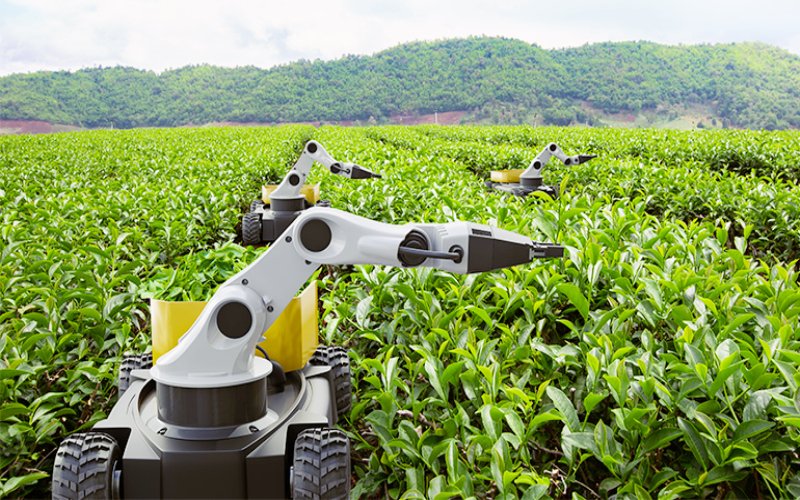Introduction to Biotechnology in Agriculture
Biotechnology in agriculture is reshaping how we grow and manage our food supply. With the global population on the rise, traditional farming methods alone cannot meet the increasing demand for resources. Biotechnology offers innovative solutions to enhance crop yields, improve food quality, and promote sustainable practices. By leveraging advances in genetic engineering, pest management, and sustainable farming, biotechnology in agriculture addresses both the challenges and opportunities facing the industry today.
The Role of Genetic Engineering
Genetic engineering represents a significant advancement in biotechnology in agriculture. This technique involves modifying the genetic material of crops to introduce desirable traits. For example, genetic engineering can enhance a plant’s resistance to pests, improve drought tolerance, or increase nutrient content. CRISPR-Cas9 technology is a cutting-edge method that allows for precise gene editing, making it possible to create crops with specific attributes efficiently.
The impact of genetic engineering extends beyond basic improvements. It enables the development of crops that can thrive in challenging environments, thereby increasing overall agricultural productivity. As genetic engineering evolves, it continues to play a crucial role in addressing food security and sustainability.
Sustainable Farming Through Biotechnology
Sustainable farming is at the forefront of biotechnology in agriculture. The focus here is on developing practices that reduce environmental impact while improving efficiency. Biotechnology contributes to sustainability by creating crops that require fewer chemical inputs, such as fertilizers and pesticides. Genetically modified plants with built-in pest resistance or improved nutrient uptake can help minimize the use of harmful chemicals, leading to cleaner and more sustainable farming practices.
Moreover, biotechnology aids in soil management and crop rotation, which are essential for maintaining soil health and reducing erosion. These innovations support the transition to more sustainable farming methods that can cope with the environmental challenges of the modern era.
Innovative Pest and Disease Management
Effective pest and disease management is crucial for maintaining healthy crops and reducing losses. Biotechnology in agriculture offers several innovative solutions for pest control. For instance, Bt crops are engineered to produce a toxin that targets specific pests, reducing the need for chemical insecticides. This approach lowers environmental and health risks associated with conventional pest control methods.
Additionally, biotechnological techniques such as RNA interference (RNAi) are being explored to target pest genes directly. This method provides an alternative to traditional pest control strategies, potentially offering a more targeted and environmentally friendly solution.
Enhancing Crop Diversity with Biotechnology
Crop diversity is vital for ensuring food security and resilience against diseases and environmental changes. Biotechnology in agriculture can both enhance and challenge crop diversity. On one hand, it introduces new traits into crops, potentially broadening the range of available varieties and improving resilience. On the other hand, the prevalence of a few genetically engineered varieties may reduce overall genetic diversity.
Balancing the benefits of biotechnological advancements with the need to preserve genetic diversity is essential for long-term agricultural sustainability. Ensuring a diverse crop gene pool helps maintain resilience and adaptability in the face of changing conditions.
Improving Food Quality with Biotechnology
Biotechnology in agriculture also focuses on enhancing the quality of food products. Advances in genetic modification and other biotechnological methods can improve the nutritional content, taste, and shelf life of foods. For example, crops can be engineered to contain higher levels of essential vitamins and minerals, addressing nutritional deficiencies in various populations.
In addition, biotechnology enhances the flavor and texture of foods, making them more appealing to consumers. Improved preservation techniques also reduce food waste, contributing to a more efficient and sustainable food supply chain.
The Future of Biotechnology in Agriculture
Looking ahead, the future of biotechnology in agriculture is promising. Emerging technologies, such as gene editing and synthetic biology, hold great potential for addressing future agricultural challenges. These advancements aim to further increase crop yields, enhance environmental resilience, and improve sustainability.
Integrating biotechnology with digital farming and precision agriculture offers new opportunities for optimizing farming practices. By utilizing data-driven approaches, farmers can make informed decisions that boost productivity while minimizing resource use.
Ethical and Regulatory Considerations
As biotechnology continues to advance, ethical and regulatory considerations become increasingly important. Ensuring that biotechnological applications are safe for both humans and the environment is a priority. Regulatory frameworks must evolve alongside technological developments to address potential risks and ensure responsible use.
Public engagement and transparent communication about biotechnological advancements are crucial for building trust and addressing concerns. Collaborative efforts among scientists, policymakers, and stakeholders can help navigate the complexities of biotechnology in agriculture and ensure its benefits are realized responsibly.
Conclusion
Biotechnology in agriculture represents a transformative force with the potential to address many challenges in modern farming. From genetic engineering and sustainable practices to pest management and food quality improvements, the applications of biotechnology are extensive. As we continue to advance these technologies, balancing innovation with ethical considerations and sustainability will be key to achieving a resilient and productive agricultural future. By harnessing the potential of biotechnology, we can work towards a more secure and sustainable food system for generations to come.
Also visit on techitl.com.




